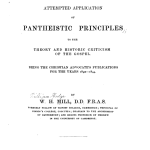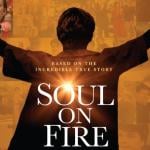I just finished reading Walter Moberly’s excellent Theology of the Book of Genesis (Cambridge). It is not a systematic approach to the theology of Genesis, but has more of the style of a series of lectures that think with the text and explore the ways in which one can articulate and practice the ‘enduring significance [of the text] for human life under God’ (see p. 17). Moberly obviously endorses a canonical approach and one that does not ignore reception history and the faith setting of interpretation. Thus: ‘It is in the meeting of the biblical text with canonical context and the ongoing life of communities of faith that theology is done’ (p. 17).
The dynamic nature of theological interpretation is also underscored by Moberly:
Theology is not a once-for-all exercise in finding the right words and/or deeds, but rather a continuing and ever-repeated attempt to articulate what a faithful understanding and use of the biblical text might look like in the changing circumstances of life (19)
One area where I have always struggled is with accepting the hermeneutics of those that support this new theological methodology; many of them shy away from a single, author-driven meaning in the text. Moberly, I think, sticks to his guns and is representative of the group generally, but offers the most cogent rationale and qualifiers I have seen. This statement gives me some comfort.
Good theological interpretation of the Old Testament is not necessarily that which might aspire to be recognized as correct in any time or any place; rather, part of its rightness may be specific and contextual, in its ability to articulate biblical priorities in relation to particular situations of need. To say this is not to prioritize relevance over accuracy, but rather to recognize, with the sociology of knowledge, that human understanding and insight depend on many factors other than pure reason and do not achieve finality in any one situation (p. 159)
This is an excellent book and Moberly does not hesitate to critique traditional readings of Genesis. He is so well read in OT studies, and also reads ‘theologians’ – a marvelous example of one who is not afraid to bridge horizons. I highly recommend that all biblical studies scholars and students put this on their list of books to read – very soon.











